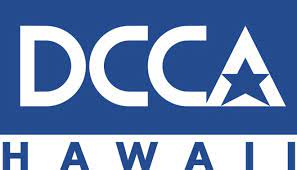Kailua-Kona, Hawaii, United States
Hawaii Treatment Center
Verified
Verified
This provider’s information has been quality-checked by Recovery.com’s Research Team for accuracy and completeness, including center verification through appropriate third-party organizations.
Estimated Cash Pay Rate
The cost listed here ($25,000 - $150,000) is an estimate of the cash pay price. Center pricing can vary based on program and length of stay. Contact the center for more information. Recovery.com strives for price transparency so you can make an informed decision.
About Hawaii Treatment Center
Hawaii Treatment Center (HTC) treats addiction and mental health conditions with personalized, luxury treatment. Their doctoral-level clinicians provide group, family, couples, and 1:1 therapy. HTC prioritizes holistic, whole-person treatment that reaches the mind, body, and spirit to address the root cause of addiction. They provide daily therapies and activities, flexible technology use, travel assistance, and large private or semi-private ensuites.
Comprehensive Care And Personal Attention
HTC provides medically monitored detox and stabilization. Clients have constant medical supervision, withdrawal management treatment, and receive psychological help as needed. After detox, clients fully transition into HTC’s residential program. HTC provides 1:1 therapy, group therapy, family therapy, and couples therapy with all doctoral-level providers. HTC treats mental health in addition to addiction, including conditions like depression, anxiety, personality disorders, ADHD, and post-traumatic stress disorder (PTSD).
Unique Therapies And Experiences
Clients at HTC can enjoy a mix of adventures and holistic healing activities. They can visit a nearby coffee farm, an observatory, volcanos, waterfalls, and embark on a safari. HTC also provides yoga, acupuncture, sound therapy, physiotherapy, nutritional therapy, dolphin therapy, massages, dance classes, cooking classes, and more. On weekends or evenings, clients can go boating, hiking, horseback riding, surfing, and tour the Big Island on ATVs.
Restorative Clinical Treatment
Hawaii Treatment Center provides evidence-based therapies in 1:1 and group settings. These include adult-child therapy, neurotherapy, seeking safety, and behavioral therapies. HTC’s expansive center houses clients in private suites or shared rooms. Each room has a spectacular view of the ocean, mountains, or a bit of both. Clients stay at HTC for a minimum of 30 days, and can stay onsite up to 9 months. HTC provides fresh local seafood, prepared by onsite chefs.
Read More

Luxury rehab centers offer a unique blend of luxurious amenities and high-quality treatment. From private suites to gourmet dining, personal trainers to spa treatments, these facilities provide a high level of comfort and discretion.

Customized Treatment Plans
Hawaii Treatment Center understands no 2 people are alike, and neither are their challenges with addiction. HTC treats each client with their own personalized plan, tailoring treatment to their unique needs and desires. Their wide variety of holistic, evidence-based, and adventure therapies helps them create specialized and specific plans for each client. HTC also offers a flexible technology policy, as needed.
Holistic Recovery
Clients at HTC receive a full holistic recovery plan, designed to heal their mind, body, and spirit. HTC offers spiritual practices like meditation, mindfulness, and yoga. Their fitness and nutrition focus helps clients heal physically, as well as HTC’s medically supervised detox. Clients can also learn how to cook—a skill they can bring home with them. Doctoral-level providers help clients heal their minds and emotions, helping them create new coping skills and navigate difficult emotions.
Dual-Diagnosis Treatment
Hawaii Treatment Center treats dual-diagnoses with focused clinical care. The mental health conditions they treat include depression, anxiety, personality disorders, ADHD, PTSD, and major depressive disorder. HTC’s therapies, activities, and services prioritize dual-healing from each condition, providing new coping strategies, resources, and relapse prevention plans.
Invigorating Island Activities
On Hawaii, or the Big Island, clients at HTC can visit waterfalls, volcanoes, parks, and an observatory. Clients can also go surfing, snorkel, climb through a ropes course, and experience dolphin therapy. HTC sources fresh seafood for meals throughout treatment. On weekends, clients can go on trips to a nearby botanical garden, hike through a state park, and more.

Center Overview
Estimated Center Costs
The cost listed here ($25,000 - $150,000), is an estimate of program cost. Center price can vary based on program and length of stay. Contact the center for more information. Recovery.com strives for price transparency so you can make an informed decision.
Executives
Executive treatment programs typically directly support the needs of people who manage businesses and may provide flexible schedules and office space to allow work during treatment.
LGBTQ+
Addiction and mental illnesses in the LGBTQ+ community must be treated with an affirming, safe, and relevant approach, which many centers provide.
Men and Women
Men and women attend treatment for addiction in a co-ed setting, going to therapy groups together to share experiences, struggles, and successes.
Professionals
Busy, high-ranking professionals get the personalized treatment they need with greater accommodations for work, privacy, and outside communication.
Treatment Focus
You can admit to this center with a primary substance use disorder or a primary mental health condition. You'll receive support each step of the way and individualized care catered to your unique situation and diagnosis.

Care Options






Treatment
Specializations
Alcohol
Using alcohol as a coping mechanism, or drinking excessively throughout the week, signals an alcohol use disorder.
Anxiety
Anxiety is a common mental health condition that can include excessive worry, panic attacks, physical tension, and increased blood pressure.
Depression
Symptoms of depression may include fatigue, a sense of numbness, and loss of interest in activities. This condition can range from mild to severe.
Drug Addiction
Drug addiction is the excessive and repetitive use of substances, despite harmful consequences to a person's life, health, and relationships.
Post Traumatic Stress Disorder
PTSD is a long-term mental health issue caused by a disturbing event or events. Symptoms include anxiety, dissociation, flashbacks, and intrusive thoughts.
Approaches
Holistic
A non-medicinal, wellness-focused approach that aims to align the mind, body, and spirit for deep and lasting healing.
Individual Treatment
Individual care meets the needs of each patient, using personalized treatment to provide them the most relevant care and greatest chance of success.
Medical
Medical addiction treatment uses approved medications to manage withdrawals and cravings, and to treat contributing mental health conditions.
Wellness
Wellness philosophies focus on the physical, mental, and spiritual wellness of each patient, helping them restore purpose with natural remedies.
Therapies
1-on-1 Counseling
Patient and therapist meet 1-on-1 to work through difficult emotions and behavioral challenges in a personal, private setting.
Meditation & Mindfulness
A practiced state of mind that brings patients to the present. It allows them to become fully aware of themselves, their feelings, and the present moment.
Mindfulness Therapy
This ancient practice can be mental, emotional, and even spiritual. In meditation, you focus your attention on the present moment without judgement.
Ayurveda
One of the oldest medicine systems, Ayurveda is based on the idea that wellness lies in the mind-body-spirit balance and can be achieved through natural interventions.
Couples Counseling
Partners work to improve their communication patterns, using advice from their therapist to better their relationship and make healthy changes.
Dolphin Therapy
Swimming with friendly dolphins is an exciting way to improve well-being, mental health, and interpersonal skills.
Equine Therapy
Guided interactions with trained horses, their handler, and a therapist can help patients improve their self-esteem, trust, empathy, and social skills.
Expressive Arts
Creative processes like art, writing, or dance use inner creative desires to help boost confidence, emotional growth, and initiate change.
Family Therapy
Family therapy addresses group dynamics within a family system, with a focus on improving communication and interrupting unhealthy relationship patterns.
Conditions We Treat
Pornography Addiction
A person with a porn addiction is emotionally dependent on pornography to the point that it interferes with their daily life and relationships.
Grief and Loss
Grief is a natural reaction to loss, but severe grief can interfere with your ability to function. You can get treatment for this condition.
Personality Disorders
Personality disorders destabilize the way a person thinks, feels, and behaves. If untreated, they can undermine relationships and lead to severe distress.
ADHD, ADD
ADHD is a common mental health condition caused by dopamine imbalance. Common symptoms include inattention, hyperactivitiy, and impulsivity.
Anxiety
Anxiety is a common mental health condition that can include excessive worry, panic attacks, physical tension, and increased blood pressure.
Bipolar
This mental health condition is characterized by extreme mood swings between depression, mania, and remission.
Codependency
Codependency is a pattern of emotional dependence and controlling behavior. It's most common among people with addicted loved ones.
Depression
Symptoms of depression may include fatigue, a sense of numbness, and loss of interest in activities. This condition can range from mild to severe.
Gambling
Excessive, repetitive gambling causes financial and interpersonal problems. This addiction can interfere with work, friendships, and familial relationships.
Gaming
Compulsive gaming is most often a problem for children and teens. The disorder can affect physical health, sleep, and the ability to focus at school.
Substances We Treat
Alcohol
Using alcohol as a coping mechanism, or drinking excessively throughout the week, signals an alcohol use disorder.
Benzodiazepines
Benzodiazepines are prescribed to treat anxiety and sleep issues. They are highly habit forming, and their abuse can cause mood changes and poor judgement.
Chronic Relapse
Consistent relapse occurs repeatedly, after partial recovery from addiction. This condition requires long-term treatment.
Co-Occurring Disorders
A person with multiple mental health diagnoses, such as addiction and depression, has co-occurring disorders also called dual diagnosis.
Cocaine
Cocaine is a stimulant with euphoric effects. Agitation, muscle ticks, psychosis, and heart issues are common symptoms of cocaine abuse.
Drug Addiction
Drug addiction is the excessive and repetitive use of substances, despite harmful consequences to a person's life, health, and relationships.
Ecstasy
Ecstasy is a stimulant that causes intense euphoria and heightened awareness. Abuse of this drug can trigger depression, insomnia, and memory problems.
Heroin
Heroin is a highly addictive and illegal opioid. It can cause insomnia, collapsed veins, heart issues, and additional mental health issues.
Psychedelics
Hallucinogenic drugs—like LSD—cause euphoria and increased sensory experiences. When abused, they can lead to depression and psychosis.
Aftercare
Experience
Personal Amenities
Amenities
Special Considerations
Executive Program
Addiction and mental health treatment for executives typically involves high discretion, greater technology access, and more private, 1-on-1 care.
Flexible technology policies
Centers with flexible technology policies allow professionals to stay in touch with work and give patients a greater sense of connection and normalcy.
Healthy Meals are provided
Great food meets great treatment, with providers serving healthy meals to restore nutrition, wellbeing, and health.
Activities
Yoga
Yoga is both a physical and spiritual practice. It includes a flow of movement, breathing techniques, and meditation.
Off-Site Activities
Off-Site Amenities
Accommodations
Food & Nutrition
Treatment
Value
Kim W.
Aaron M.
We love hearing about your treatment experience
Help individuals and families seeking treatment by sharing your first-hand experience with this treatment provider. Review Guidelines.







































